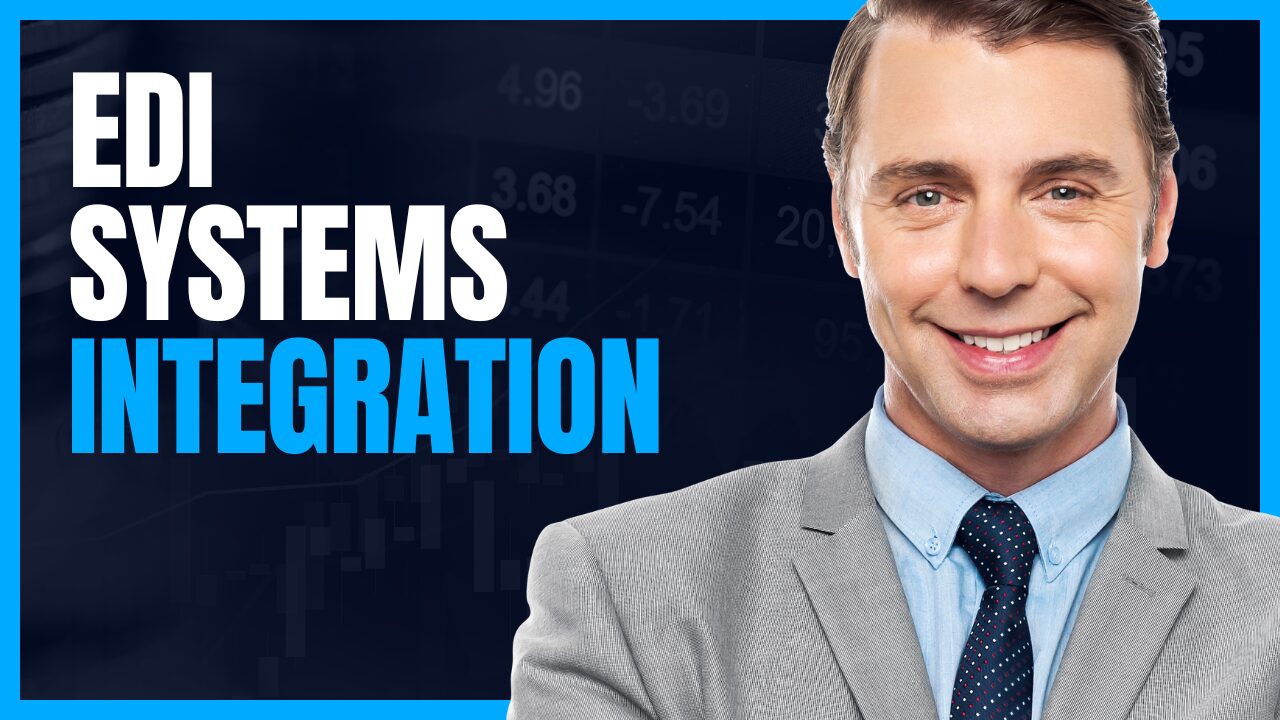Is Your Managed Services Provider Supporting Your EDI Systems Integration? Key Factors to Consider
As companies increasingly embrace Electronic Data Interchange (EDI) systems to streamline their transactions and communication, it’s crucial to ensure that your managed services provider (MSP) fully supports and enhances the integration of these crucial systems. A well-integrated EDI solution can provide organizations with real-time, automated document exchange, simplify compliance with various industry standards, and grow business efficiency.
Choosing the right MSP to guide your company’s EDI systems integration is paramount to the success of your investment. By seeking a provider with expertise, experience, and a solid reputation in the industry, you can avoid common integration pitfalls and make the most out of your EDI solution. An MSP should be able to customize their solutions based on your unique business or industry demands, enabling seamless integration and fostering healthy working relationships between your organization and your trading partners.
Key Takeaways
- Seek a managed services provider with expertise and experience in EDI systems integration.
- Providers should tailor their solutions to your specific business or industry requirements.
- Effective integration can improve efficiency, compliance, and partner relationships.
Understanding EDI Systems Integration
Electronic Data Interchange (EDI) is a technology that enables businesses to exchange important documents in a standardized format, replacing traditional paper-based documentation like purchase orders or invoices. Proper EDI integration makes transactions more efficient, faster, and less prone to errors.
Key Components of EDI Systems
- Standard Formats: EDI relies on standard formats, such as ANSI ASC X12, EDIFACT, or TRADACOMS, to enable seamless communication and data exchange between various trading partners.
- Trading Partner Onboarding: Establishing new connections or modifying existing ones with different trading partners is essential for effective EDI integration.
- Data Mapping: Converting data between various formats, such as translating an incoming purchase order to your internal ERP system.
- Error Handling and Monitoring: Identifying and resolving errors in the EDI process, ensuring seamless data exchange and reducing downtime.
- Security: Confidentiality and integrity are maintained while exchanging data with trading partners.
Importance of Integration in Managed Services
A Managed Services Provider (MSP) can offer specialized support in integrating EDI systems and managing the abovementioned components. Choosing the right MSP for your EDI integration can provide several benefits, such as:
- Efficient Onboarding: MSPs can expedite the process of onboarding or changing trading partners, ensuring minimal disruption to your business processes.
- In-depth Expertise: A professional MSP will have a comprehensive understanding of EDI systems and be able to ensure efficient document exchange and compliance with dynamic regulatory mandates.
- Ongoing Support: MSPs provide continuous support and monitoring, identifying and resolving potential issues before they escalate and impact your business operations.
- Ease of Scalability: As your business grows and your EDI requirements increase, an MSP can help you efficiently scale your EDI infrastructure to accommodate the additional workload.
Evaluating Your Managed Services Provider
Criteria for Effective EDI Support
When evaluating your Managed Services Provider (MSP) for EDI systems integration support, it’s essential to consider the following criteria:
- Expertise in EDI: Ensure your MSP has extensive knowledge and experience in various EDI standards, such as ANSI X12, EDIFACT, and XML.
- Industry-specific Experience: Look for a provider with a track record of successfully supporting businesses in your industry.
- Scalability: Your MSP should be able to scale its support as your business grows, handling the increasing volume of EDI transactions.
Assessing Integration Competencies
Examining the MSP’s integration capabilities is an essential part of the evaluation process. Here are some factors to take into account:
- Integration Platform: Determine whether the provider utilizes a proven and reliable platform for seamless EDI systems integration with your IT infrastructure.
- Customization: The MSP should offer tailored solutions catering to your business requirements and workflows.
- Data Management and Security: Ensure the provider adheres to industry-standard security measures and practices for storing, processing, and transmitting your sensitive business data.
Communication and Issue Resolution
Effective communication and timely issue resolution are critical aspects of an MSP’s service. Keep these points in mind when evaluating the provider:
- Support Accessibility: Verify that the provider offers comprehensive support, such as 24/7 assistance, to promptly address and resolve unforeseen issues.
- Communication Channels: Your MSP must offer multiple communication channels, such as email, phone, and chat, enabling you to quickly reach them for support when needed.
- Service Level Agreements (SLAs): Check if the MSP’s SLAs guarantee prompt response and resolution times for client support requests, ensuring minimal disruption to your business operations.
Optimizing Managed Service Offerings for EDI
Enhancing Data Security and Compliance
Choosing the right managed service provider (MSP) for your EDI systems is crucial for optimizing your data security and compliance. A reliable MSP ensures that your sensitive business information is protected by implementing robust security measures, such as end-to-end encryption and multi-factor authentication. Furthermore, a good MSP understands the importance of complying with industry-specific regulations like HIPAA, GDPR, or PCI-DSS and implements the necessary safeguards to maintain compliance. Regular audits and vulnerability assessments are essential to a comprehensive data security strategy.
Customization and Scalability
Your EDI system should be tailored to meet your unique business needs and requirements. When evaluating a managed service provider, it’s essential to consider their ability to deliver customized solutions that align with your business objectives. Choose an MSP that offers a wide range of EDI formats, mapping capabilities, and integration options to ensure seamless connectivity with your trading partners.
Scalability is another critical aspect of a well-designed EDI solution. As your business grows, your EDI needs will likely expand, too. A reliable MSP enables your organization to scale up or down as required. They should offer flexible pricing models that accommodate fluctuations in transaction volumes and onboarding new partners without becoming cost-prohibitive.
Ongoing Monitoring and Proactive Maintenance
A successful EDI managed services partnership goes beyond the initial setup and implementation. Your MSP should provide you with ongoing monitoring and proactive maintenance of your EDI environment. This includes continuously optimizing system performance, ensuring operational efficiency, and addressing potential issues before they negatively impact your business.
To achieve this, your MSP should offer 24/7 support and expertise in EDI, allowing them to quickly respond to any issues. By providing real-time visibility into your EDI environment, your MSP can help you stay informed, maintain confidence, and reduce the risks associated with EDI-related issues.

Transitioning and Implementation Strategies
Planning for EDI System Upgrades
Careful planning is essential to ensure a smooth transition when upgrading your EDI systems. Begin by analyzing your current system’s performance and identifying areas of improvement. Review the requirements of your trading partners and consider future growth. Create a detailed project plan, including milestones and deadlines to keep the process on track.
- Assess your current system: Evaluate the current state of your EDI solution, its strengths, and weaknesses. Identify the main areas that need improvement or require additional features.
- Gather requirements: Consult with your trading partners to understand their expectations and review any gaps or overlaps between your existing system and their requirements.
- Evaluate potential providers: Research and compare various EDI managed services providers, ensuring the provider’s solution aligns with your business needs and addresses gaps in the existing system.
- Develop a project plan: Outline a timeline with milestones, deadlines, and resource allocations to facilitate a smooth and organized upgrade process.
Seamless Migration Approaches
A successful migration requires a seamless approach to avoid disruptions and maintain trading partner relationships. The key is to work closely with your chosen EDI managed services provider to ensure a smooth transition. Here are some vital steps to follow:
- Map data and processes: Collaborate with your EDI provider to create accurate maps of your data and business processes. This will help ensure that the implementation of the new system aligns with your existing infrastructure.
- Parallel testing: While implementing the new system, run your platform in parallel to maintain data integrity and allow accurate comparisons between the two solutions.
- Partner communication: Keep your trading partners informed about the migration process, timelines, and any expectations for them. This can minimize disruptions and ensure a smooth transition.
- Training and support: Provide thorough training for your team, ensuring they are comfortable and confident with the new EDI system. Additionally, ensure access to ongoing support from your EDI provider to address future concerns or issues.
How A Managed IT Services Company Can Support Your EDI Integrations
A Managed IT Services Company can be crucial in supporting your Electronic Data Interchange (EDI) systems integration. By leveraging their expertise and resources, these providers can help you streamline your data exchange processes, enhance efficiency, and reduce overhead costs. Here are a few ways a managed IT services company can support your EDI integrations:
- Expertise: A managed services company has a team of EDI specialists who can assess your current EDI setup and identify areas for improvement. With their in-depth understanding of various EDI protocols, these professionals can offer guidance on implementing best practices and optimizing your system’s performance.
- Efficient Data Mapping: One of the significant challenges in EDI integration is the translation of data between different file formats or standards. A managed IT service provider can help perform data mapping, routing, and harmonization efficiently, ensuring seamless data exchange between your business and its trading partners.
- Scalability: As your business grows, so do your EDI requirements. A managed IT services company can provide scalable solutions that adapt to your evolving needs, ensuring you always use the most up-to-date and efficient systems.
- Security: A managed IT services provider can help implement stringent security measures to protect your sensitive EDI data against unauthorized access and data breaches.
- Monitoring and Support: Lastly, a managed IT services company offers round-the-clock monitoring and support for your EDI integrations. This ensures any potential issues are promptly addressed, minimizes downtime, and ensures uninterrupted data exchange with your trading partners.






